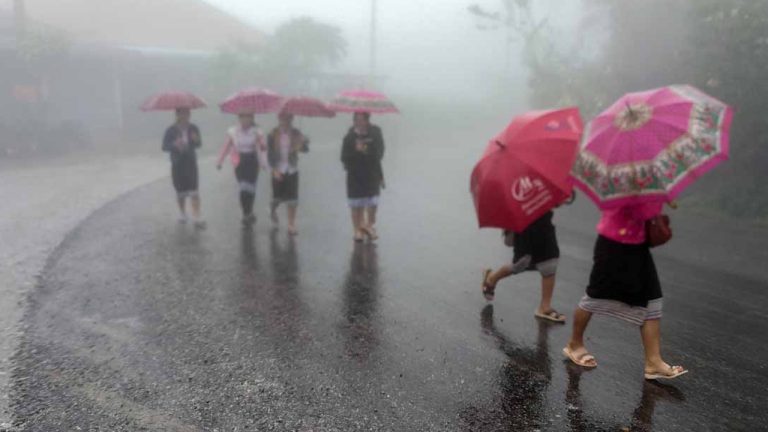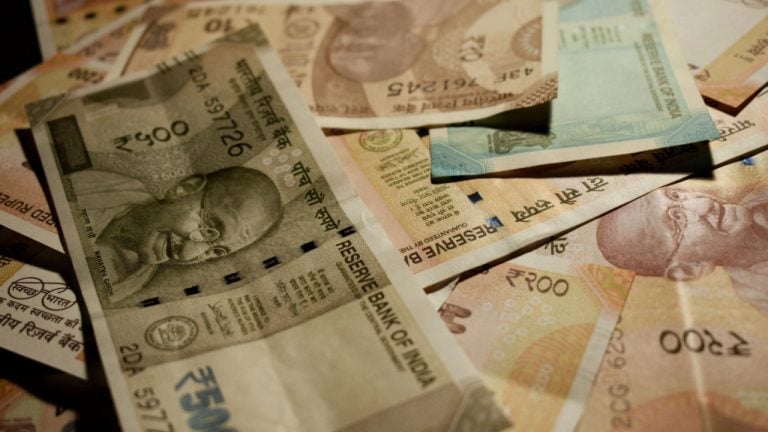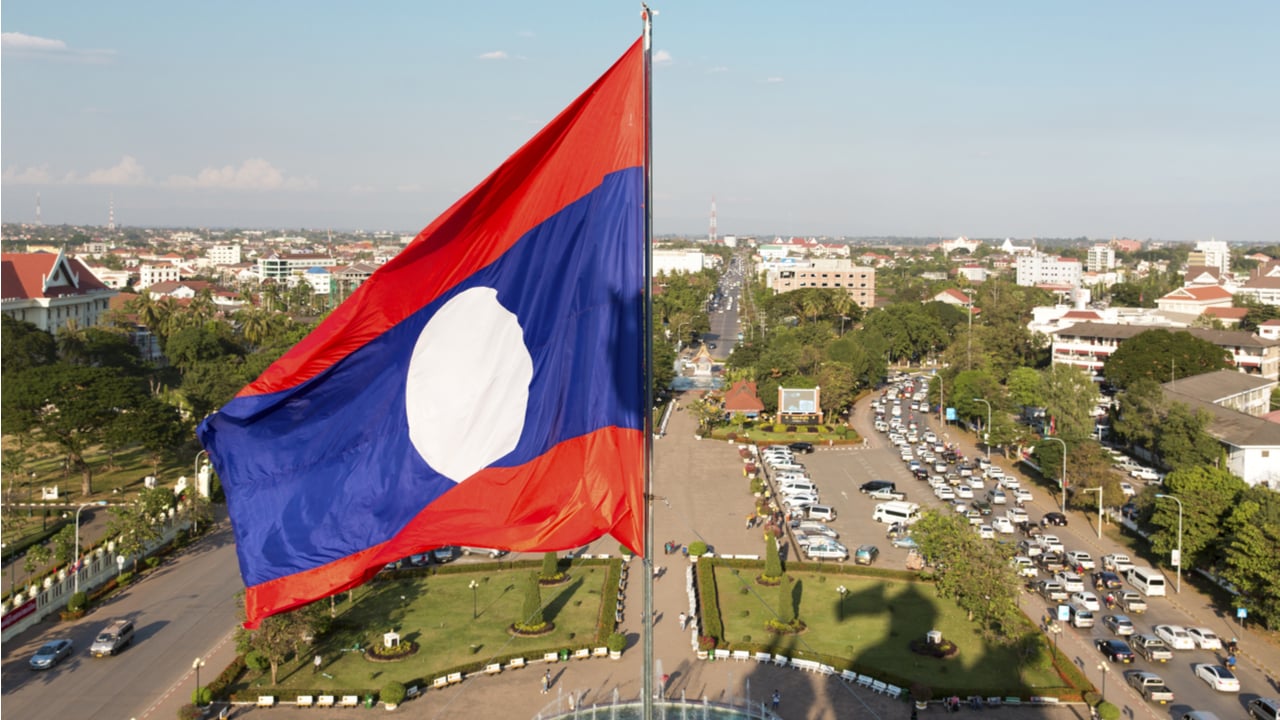 Vietnamese authorities have reportedly dismantled a cross-border fraud ring involved in romance scams and fraudulent cryptocurrency schemes. Led by foreign criminals, the group operated from Laos and defrauded victims of tens of billions of dong. Key Vietnamese suspects, trained in digital deception, have been arrested for their roles in the scheme, which included using fake […]
Vietnamese authorities have reportedly dismantled a cross-border fraud ring involved in romance scams and fraudulent cryptocurrency schemes. Led by foreign criminals, the group operated from Laos and defrauded victims of tens of billions of dong. Key Vietnamese suspects, trained in digital deception, have been arrested for their roles in the scheme, which included using fake […] A report released on May 16 highlights how increased electricity consumption due to crypto mining and inconsistent rainfall have led to power shortages in Laos, challenging its goals as a hydropower exporter in Southeast Asia. Reuters: Increased Crypto Mining Strains Laos’ Hydropower Grid Laos, often called the “battery of Southeast Asia” for its extensive hydropower […]
A report released on May 16 highlights how increased electricity consumption due to crypto mining and inconsistent rainfall have led to power shortages in Laos, challenging its goals as a hydropower exporter in Southeast Asia. Reuters: Increased Crypto Mining Strains Laos’ Hydropower Grid Laos, often called the “battery of Southeast Asia” for its extensive hydropower […]
The government says the tax debt will be slashed by 50% in response to a pro-rated drop in cryptocurrency prices after the obligations were set.
In an effort to boost state revenues, Laos appears to be turning its attention to the country's crypto sector.
According to a Nov. 9 report by China's state news agency Xinhua News, citing a report from Laos People's Army News, cryptocurrency operators in the Southeast Asian country owes $20 million in taxes and licensing fees. To expand government revenue streams, Laos previously authorized 15 blockchain companies to mine crypto or operate as exchanges.
However, as detailed by Laos' Prime Minister Sonexay Siphandone, two companies in the novel initiative "made no progress" whatsoever. Others, meanwhile, fell behind on their payment obligations to the state. Sonexay also noted that since the government fixed the tax obligations, the price of cryptocurrencies has plummeted 50% overall. Therefore, the Laos government will reduce the balance owing by crypto companies by 50% as well.
With that decision, the companies began paying their fees, and it is expected that all the fees will be fully settled by the end of the year, said Sonexay. However, he also warned that companies falling behind on t progress will have their operations suspended, fined, or license revoked.
Laos' government faced a crisis this year with an extended drought lasting between January and June. The disaster, among many casualties, forced the state-owned electricity distribution company Électricité du Laos to suspend electricity supply to the country's crypto-mining operations. In May, the Laos government outlined several key tenets for its digital transformation, among which is the use of digital technology to generate new fiscal revenue, bolster foreign exchange reserves, curb inflation, and foster sustainable economic growth.
Blockchain 4.0 is revolutionizing #Laos. It's driving financial inclusion, fostering transparency, and enhancing security in transactions. Smart contracts and decentralized finance are opening new avenues for growth. Truly, a game-changer for the nation's economy. #MetaBankLaos… pic.twitter.com/oyaAKzFNjk
— MetaBank (@MetaBankSG) May 27, 2023

The drought that the country experienced in the first half of 2023 resulted in higher electricity demand and lower power generation capabilities from hydropower plants.
Laos state-owned electricity distribution company Électricité du Laos (EDL) has announced that it will suspend electricity supply to crypto mining operations in the country, citing various reasons such as the struggle to generate enough power amid drought conditions.
According to the announcement, Laos experienced drought in the first half of 2023. The extreme heat resulted in higher demand for electricity and caused hydropower plants to struggle to generate enough power.

Apart from this, the EDL said that hydropower plants generate 95% of the country’s power, and it aims to supply electricity locally and export large volumes to Thailand in 2024. The country’s export capacity will also be affected as conditions become more severe.
In an interview with a local media outlet, the Laotian Times, an EDL employee said that another reason for the suspension of supply for crypto mining projects is their inability to “pay their outstanding balances.”
On Sept. 11, 2021, the Laotian government approved the public-private pilot to explore crypto mining and trading. The move aims to capitalize on China’s crackdown on mining, resulting in industrial-scale miners trying to find a different venue for operations. At the time, six companies had been permitted to conduct mining operations in Laos as part of the program.
Related: Laos government reportedly prioritizes blockchain technology for digital transformation
In other news, the Sultanate of Oman, a country located on the southeastern coast of the Arabian Peninsula, has launched a $370 million crypto-mining center. On Aug. 22, the center was opened in a special economic zone called the Salalah Free Zone. A local company, Exahertz, will run the center with the Dubai-based blockchain firm Moonwalk Systems.
Meanwhile, a Chinese official was sentenced to life in prison for corruption in operating a Bitcoin mining enterprise. On Aug. 22, Xiao Yi, a Chinese politician, was given a prison sentence for abuse of power and corruption. According to prosecutors, Yi covered up the mining operations by instructing departments to fabricate reports and adjust the electricity consumption.
Collect this article as an NFT to preserve this moment in history and show your support for independent journalism in the crypto space.
Magazine: China’s 180M digital yuan airdrop, Devastation in Turkey, Laos’ CBDC: Asia Express
 The leaders of 10 Southeast Asian nations, members of the Association of Southeast Asian Nations (ASEAN), have agreed to “encourage the use of local currencies for economic and financial transactions.” The group comprises Brunei, Cambodia, Indonesia, Laos, Malaysia, Myanmar, Philippines, Singapore, Thailand, and Vietnam. This move will help them reduce their reliance on the U.S. […]
The leaders of 10 Southeast Asian nations, members of the Association of Southeast Asian Nations (ASEAN), have agreed to “encourage the use of local currencies for economic and financial transactions.” The group comprises Brunei, Cambodia, Indonesia, Laos, Malaysia, Myanmar, Philippines, Singapore, Thailand, and Vietnam. This move will help them reduce their reliance on the U.S. […] The government of India has announced that it will facilitate the settlement of international transactions using its national currency, the rupee. As part of its foreign trading policy framework implemented on April 1, the country introduced this measure to facilitate payments for countries experiencing a U.S. dollar crush. India to Offer Rupee-Based Settlement Options for […]
The government of India has announced that it will facilitate the settlement of international transactions using its national currency, the rupee. As part of its foreign trading policy framework implemented on April 1, the country introduced this measure to facilitate payments for countries experiencing a U.S. dollar crush. India to Offer Rupee-Based Settlement Options for […] The central bank of Laos has issued licenses to two cryptocurrency trading platforms. Lao Digital Assets Exchange (LDX) and Bitqik are now the only two licensed entities that can offer full brokerage and trading services in cryptocurrencies and other digital assets in the country. 2 Cryptocurrency Exchanges Authorized in Laos Laos’ central bank, the Bank […]
The central bank of Laos has issued licenses to two cryptocurrency trading platforms. Lao Digital Assets Exchange (LDX) and Bitqik are now the only two licensed entities that can offer full brokerage and trading services in cryptocurrencies and other digital assets in the country. 2 Cryptocurrency Exchanges Authorized in Laos Laos’ central bank, the Bank […]
Lawmakers reportedly plan to use the extra revenue for “priority programs,” including paying down the national debt and responding to the pandemic.
The Laos government’s pilot project to explore cryptocurrency mining and trading is expected to bring in roughly $194 million towards the country’s total domestic revenue projected for 2022.
According to a Nov. 2 report from Malaysian news outlet The Star, the Laotian government’s recent bid to capitalize on China’s crypto mining crackdown may be netting the country 2 trillion kip — roughly $194 million at the time of publication — in revenue from six firms. The companies in the public-private mining pilot program officials approved in September include Wap Data Technology Laos, Phongsubthavy Road and Bridge Construction, Sisaket Construction Company Limited, Boupha Road-Bridge Design Survey, Joint Development Bank, and Phousy Group.
The government reportedly said the funds would increase the expected revenue for the National Assembly’s draft budget in 2022 by 20% that of 2021. Lawmakers plan to use the extra revenue for “priority programs,” including paying down the national debt and responding to the pandemic.
Related: Finding a new home: Bitcoin miners settling down after China exodus
While the Laotian government granted six companies permission to mine crypto, the country’s central bank has issued more than one warning over the years advising residents of the risks associated with unregulated crypto assets, which are still largely illegal in Laos. However, Bank of the Lao P.D.R is reportedly looking into the development of a central bank digital currency partnership with Japanese distributed ledger technology firm Soramitsu.

Soramitsu, the firm that helped build Cambodia’s Bakong digital payments system, will work with the Laos government to research what a Laotian CBDC might look like.
Laos has become the latest nation to begin exploring a central bank digital currency (CBDC), announcing upcoming research on the subject in partnership with Japanese distributed ledger technology (DLT) firm Soramitsu.
According to an Oct. 3 report from Nikkei Asia, the project is expected to begin this month and follows the signing of a memorandum of understanding between Laos’ central bank and the Japan International Cooperation Agency to study the development of CBDC.
The study will assess the operations of banks and other financial intermediaries within the financial system, in addition to assessing the broader transactional needs of the Laotian public
The report states that a CBDC would offer Laotian policymakers better economic data, and could pave the way for cross-border CBDC-based settlements with its neighbor and second-largest trading partner, China.
Soramitsu worked with Cambodia to develop its Bakong digital payment system, a DLT-based payments network that was designed to reduce the country’s reliance on U.S. dollars for domestic trade.
The Bakong app has been downloaded roughly 200,000 times since its launch in October 2020 and is currently supported by approximately 2,000 stores.
The Laos government’s move to research a CBDC appears to have come amid a push to explore more permissive digital asset regulation.
On Sept. 11, the administration officially approved a public-private pilot exploring cryptocurrency mining and trading in a bid to capitalize on China’s latest crackdown on the mining sector and the resulting exodus of industrial-scale miners.
Six companies including banks and construction firms have been granted permission to mine crypto assets as part of the project.
Related: Crypto transactions surge 706% in Asia as institutional adoption grows — Chainalysis
Several government ministries led by the Ministry of Technology and Communications in partnership with the Bank of Laos and national power utility Electricite du Laos have also begun working toward drafting regulations governing the use of digital assets in Laos.
However, the country’s central bank issued a notice warning the public against the risks associated with unregulated crypto assets including Bitcoin and Ethereum.
 The central bank of Laos intends to explore issuing its own digital currency, according to a media report that provided details on the plan. A study on the matter will commence soon and will be conducted with the support of a fintech startup based in Japan. Central Bank of Laos Joins Race to Develop Digital […]
The central bank of Laos intends to explore issuing its own digital currency, according to a media report that provided details on the plan. A study on the matter will commence soon and will be conducted with the support of a fintech startup based in Japan. Central Bank of Laos Joins Race to Develop Digital […]